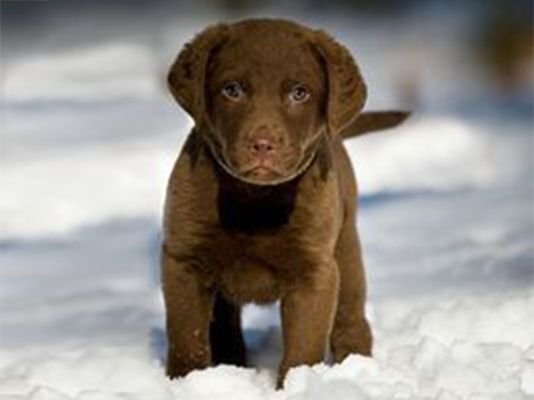
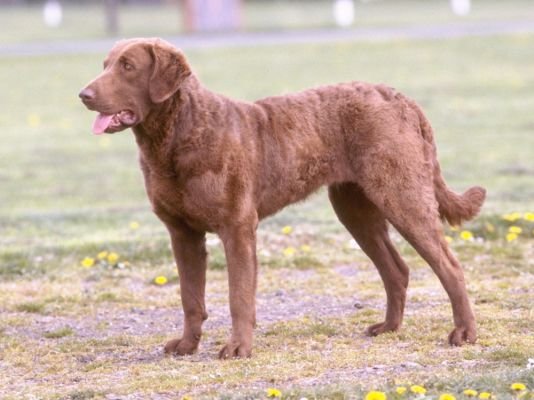
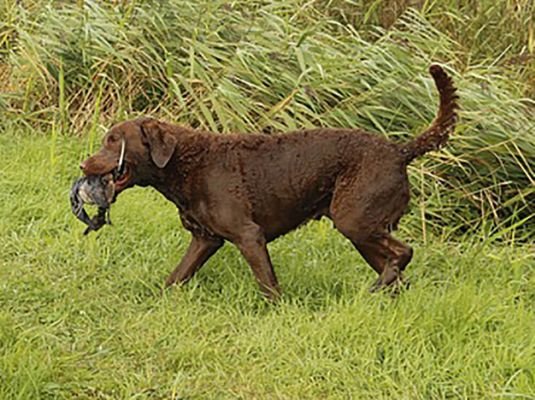

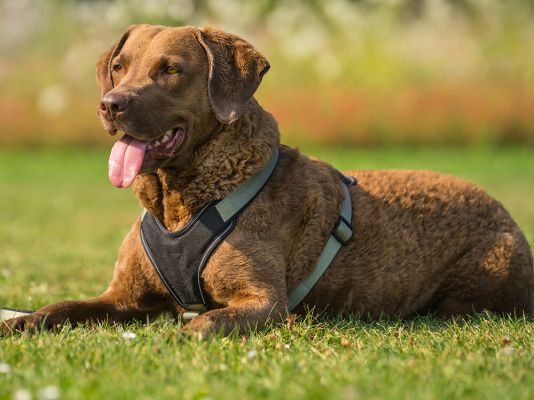
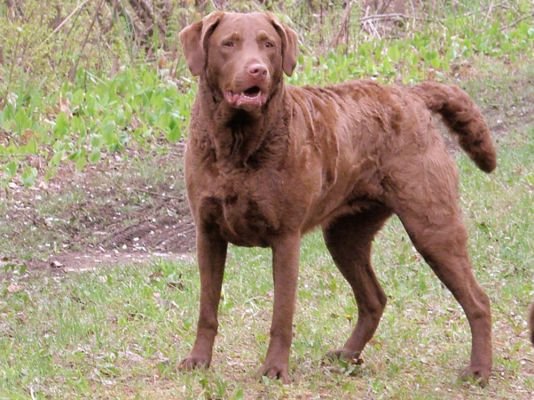
Meet the Chesapeake Bay Retriever: The Rugged Water Warrior with a Heart of Gold
Picture a dog that thrives in icy waters, breaks through frozen lakes with its barrel chest, and still melts your heart with a goofy grin—that’s the Chesapeake Bay Retriever (or “Chessie”). Bred for grit and loyalty, this all-American classic isn’t your average retriever. Let’s dive into what makes this breed a unique blend of toughness and tenderness.
Quick Snapshot
| Trait | Chessie |
|---|---|
| Height | 21–26″ (53–66cm) |
| Weight | 55–80 lbs (25–36kg) |
| Lifespan | 10–13 years |
| Coat | Oily, waterproof double coat |
| Energy Level | High (2+ hours daily) |
| Barking | Moderate (alert but not yappy) |
Looks & Grooming Hacks
Chessies are built like aquatic tanks with a heartwarming twist:
- Signature Style: Think broad head, amber eyes that gleam like honey, and a muscular frame. Their coat? A weatherproof marvel—rough, wavy outer hairs over a woolly underlayer. Colors range from “deadgrass” (straw-like) to deep sedge (reddish-brown), blending perfectly with marshlands.
- Grooming 101: Brush weekly to spread natural oils—overbathing strips their waterproof magic. Pro tip: Skip the blow-dryer; their coat air-dries fast!
- Ear Alert! Those floppy ears trap moisture. Clean weekly with vet-approved wipes to dodge infections.
Fun Fact: Their webbed feet aren’t just cute—they’re Olympic-grade paddles for icy swims.
Personality: Loyal Protector with a Soft Side
Chessies are 70% “Workaholic”, 20% “Family Clown”, 10% “Couch Snuggler”:
- Kid-Friendly? Best with older kids who respect boundaries. Toddlers? Their protective streak might misinterpret rough play.
- Pet Politics: Raised with dogs? Possible peace… strange cats? “Must. Investigate. Now!” Early socialization is key to curb bossiness.
- Training Trick: Use praise over treats! Chessies aim to please but won’t beg. Firm, patient leadership wins—harshness backfires.
Key Insight: Bred to retrieve 200 ducks a day in freezing bays, they’re happiest with a job—think dock diving or hiking.
Pros & Cons
| Pros | Cons |
|---|---|
| Unmatched water stamina | Stubborn streak (not for first-time owners) |
| Low-maintenance coat | Prone to hip dysplasia, bloat |
| Fiercely loyal family guardian | Needs serious exercise (think 5-mile hikes) |
Health & Nutrition
Diet Essentials:
- Adults: 2–3 cups high-protein kibble (30%+ meat). Skip grains—itchy skin is no joke.
- Snack Hack: Frozen salmon chunks (omega-3 boost!). Avoid fatty scraps—bloat risks.
- Watch For: Hip/joint issues (glucosamine supplements help!), eye problems (yearly vet checks).
Exercise Musts:
- Morning swims (their true happy place!).
- Evening scent games (hide duck decoys in the yard!).
Spotting a Quality Chessie
| Trait | Healthy Pick | Red Flags! |
|---|---|---|
| Eyes | Clear amber, no discharge | Cloudiness or excessive tearing |
| Movement | Smooth, no limping | Stiffness or reluctance to jump |
| Temperament | Confident but calm | Extreme shyness or aggression |
Ethical Breeder Checklist:
- Health clearances: Hips (OFA), eyes (CERF), DNA tests.
- Meet both parents—should be outgoing, not skittish.
- Puppies raised around water (early swim lessons!).
Final Thought
The Chessie isn’t just a dog—it’s a lifestyle. Ready for muddy paws, lake-day adventures, and a loyal shadow who’d brave a snowstorm for you? Just remember: Their independence demands respect. Skip if you’re a couch potato… but if you crave a rugged, big-hearted partner-in-crime, this breed’s unmatched.
P.S. Rescue alert! Check breed-specific rescues—many Chessies need homes after failed hunting gigs. Adopting one? That’s true grit meets grace.


